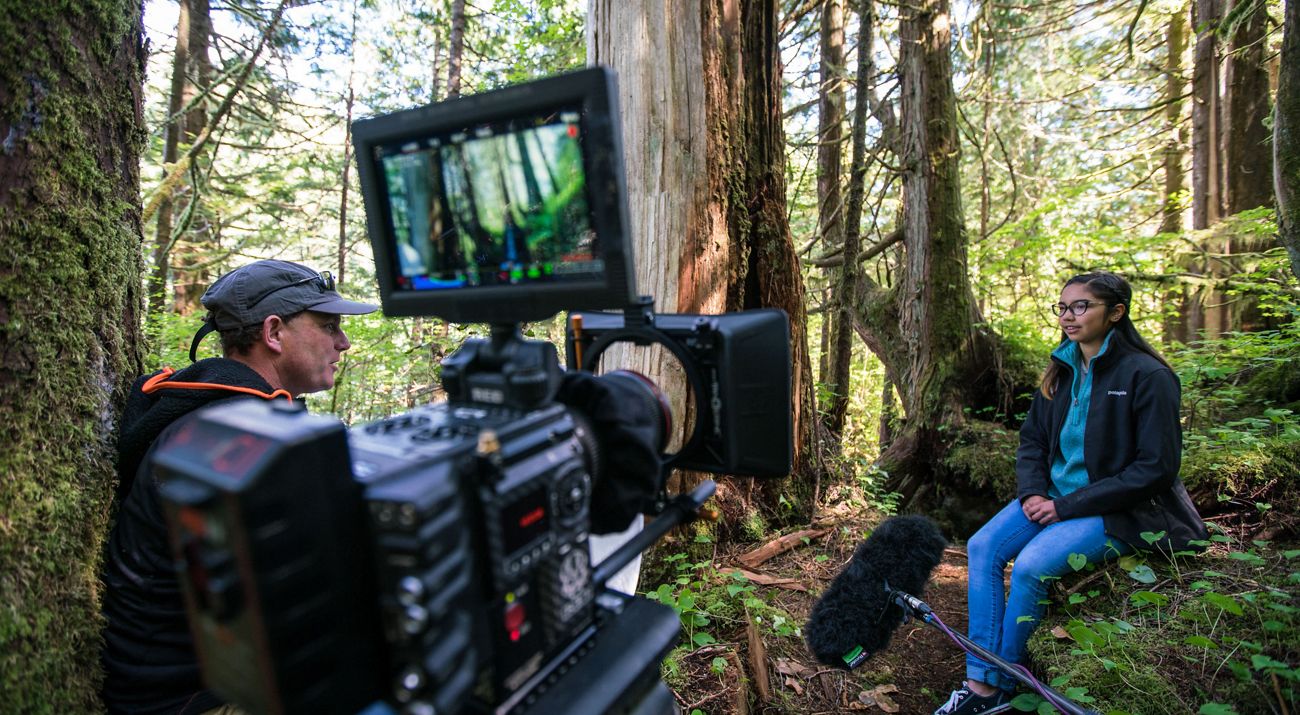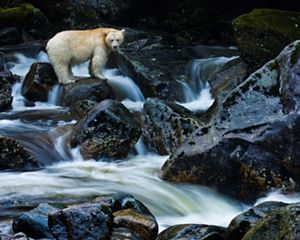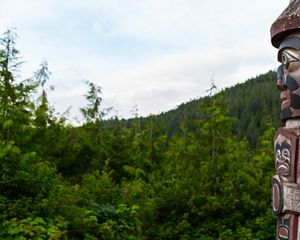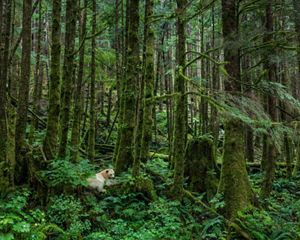Q&A: Seeing Her Homeland through a New Lens
Mercedes has tracked grizzlies and explored her homeland—as a young leader supported by TNC and now in an IMAX film about Great Bear.
In Klemtu, in the heart of the Great Bear Rainforest, 17-year-old Mercedes Robinson-Neasloss from the Kitasoo/Xai’xais Nation has grown up surrounded by ancient trees, rivers of spawning salmon, and humpback whales that feed and play within sight of her house. Her learning has been supported by a locally led youth program called SEAS (Supporting Emerging Aboriginal Stewards) developed in partnership with our Canadian affiliate, Nature United. It blends science and traditional knowledge in schools and through summer internships, bringing Indigenous youth out to explore their territories, reviving culture and language, and making intergenerational connections.
This year, Mercedes will be sharing her home and culture in an IMAX film called Great Bear Rainforest, coming to screens in Canada, the U.S. and around the world. We asked her a few questions about her larger-than-life experience.
What was it like to be filmed for the biggest screen—IMAX!—and how did you get involved?
Going out into our territory and having such an awesome crew to work with made me feel really comfortable in front of the camera. I’ve been interviewed before but never in front of such a huge camera! But it was more the thought of it being an IMAX film—that’s intimidating. I felt more nervous afterwards thinking about the film being on huge screens in different places around the world.
The filming happened two summers ago, when I was working for the Spirit Bear Research Foundation. We were doing field work on bears, collecting their fur so their DNA could be tested to find out about the bears’ diets, their health and a lot more. You’ll learn a lot about bears in the film. At one point, the filmmakers hung a wire over a stomp trail, and a bear just came along and walked in exactly that spot—it was perfect. Then the bear rubbed its back on a tree, and we were standing maybe five meters away, just out of sight of the camera. Stomp trails and rub trees are ways that bears communicate with other bears in the area. On the trails, they stomp their paws into the ground and the glands in their paws give off a scent. Every bear that walks along that trail steps in the same spots.
Quote: Learn More on natureunited.ca
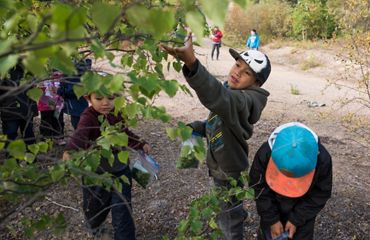
Each year, our Emerging Leaders programs bring 450 Indigenous youth out to explore their territories in British Columbia and the Northwest Territories. We’re working to expand its reach.
Why is the SEAS program so valuable for youth in your community?
A lot of what I learned in SEAS I wouldn’t have learned anywhere else. Or maybe I would have in school or through books, but I wouldn’t have experienced them. I wouldn’t have learned as deeply.
Going into my job at Spirit Bear Research, I already knew so much about bears—their behaviours, their habits, and how they are connected to the rainforest, the salmon, the rivers and ocean. I knew what to expect if we ever encountered a bear. SEAS also took me to places in our territory that are important to our culture. I learned about medicines and how to harvest them. I heard stories from my Elders. More than anything, it made me realize how connected everything is.
But SEAS is not just for kids. I went seaweed picking for the first time with the SEAS program. My mom came and it was the first time she’d ever gone seaweed picking. She didn’t get the opportunity to do that before. We learned how to harvest like our people used to, to prepare for the winter. SEAS connected my mom to her culture in a way she didn’t get to when she was my age.
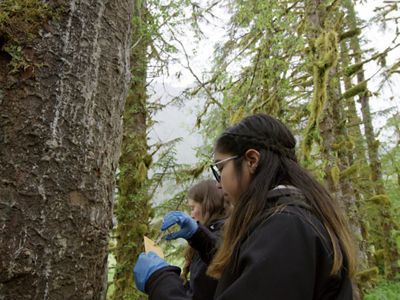
What do you hope audiences will learn from the film?
I hope they learn that the Great Bear Rainforest is really special and rare, and that it needs to be protected for the younger generations. We have to do something before things can’t be fixed. Like global warming—it affects everything, like ecosystems and animals, and people.
I also hope they learn about the people who live in the Great Bear Rainforest. Our people have been here for a long time, taking care of this special place.
You’re a movie star now. Can you see yourself becoming an actor or working in film?
That would be cool. I think if the opportunity came up, I would take it. Everyone’s saying, “I need to get your autograph before you become famous,” and I’m like, “I don’t think this makes me famous!”
At this point, I know I should know what I want to be when I grow up, but it’s hard. I want to continue with school, and I’ve thought about becoming a teacher. I really like learning, and I see how important it is for kids to learn about their culture and language. It really matters. I want to learn more and pass down my knowledge to younger generations.
Support Our Work in the Great Bear Rainforest
TNC supports locally led initiatives that blend science and tradition, revive culture and language, and bring youth out to explore their territories.
